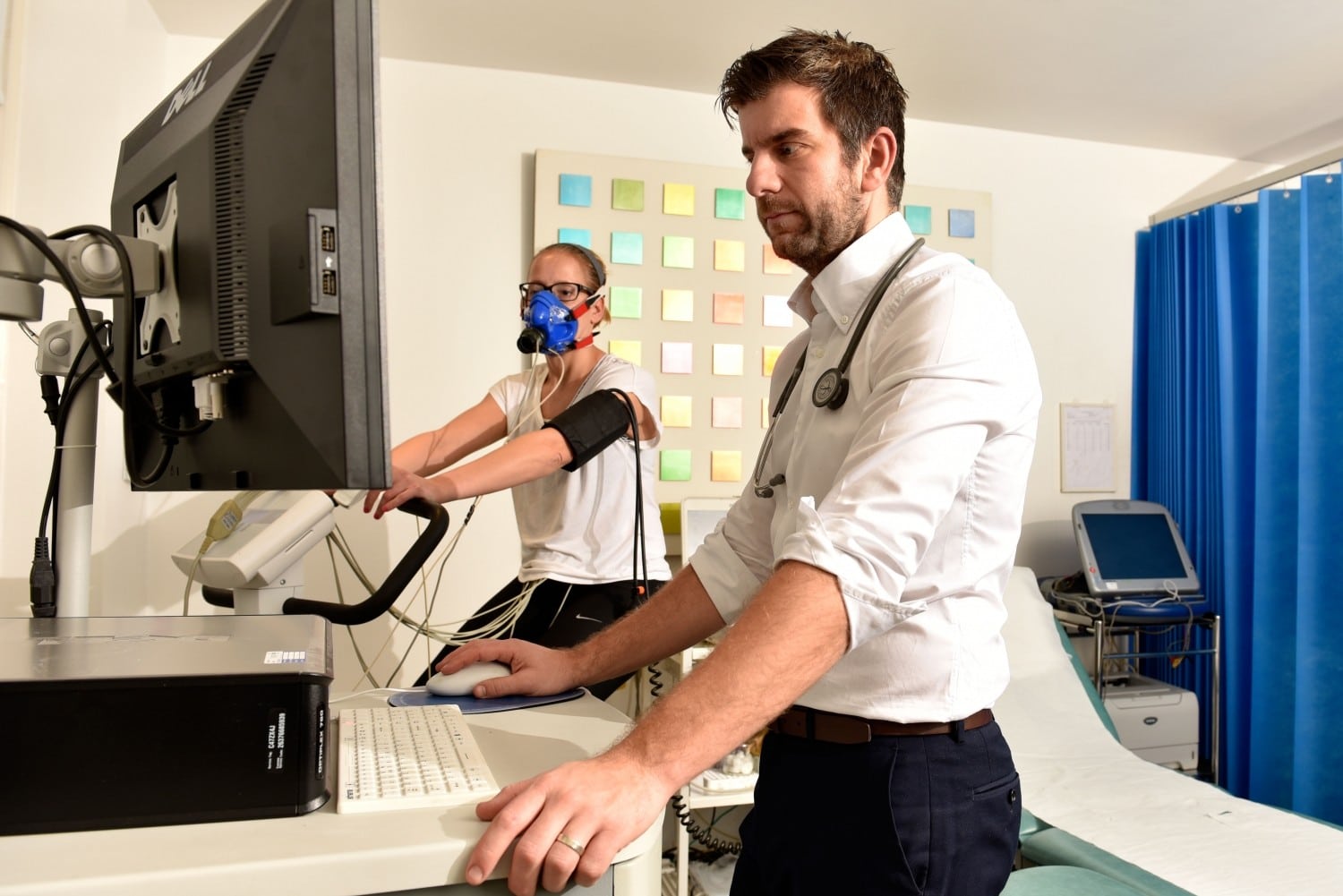Find out what a Dobutamine Stress Echocardiogram is, what’s involved and why you might need one. We’ll investigate how well your heart responds to stress and if any blood flow problems are present, so we can accurately diagnose your heart condition and create your personalised treatment plan. Choose cardiologists that care and book your consultation today.
What is a Dobutamine Stress Echocardiogram (DSE) test?
A Dobutamine Stress Echocardiogram (DSE) allows doctors to analyse your heart at a resting pace and during ‘stress’ when it is beating faster. This works by injecting you with a medication called dobutamine. It identifies narrowed blood vessels by assessing the effect of these narrowings on heart pumping. It is more specific and can produce more detailed results than an Exercise Tolerance Test (ETT).
What can DSE diagnose?
A Dobutamine Stress Echocardiogram can diagnose:
- Coronary artery disease
- Cardiac muscle damage
- Heart valve problems, such as Aortic Stenosis
Preparing for your DSE test
Don’t: Take beta-blockers, verapamil or diltiazem tablets for 48 hours before the test. This is because they may stop the heart rate increase we need.
Do: Take any other medication as normal. You should also bring a list of all the medications you are taking and let the staff know if you have any allergies or reactions to drugs or other tests.
The procedure
- Your blood pressure will be checked upon arrival and monitored throughout the procedure. If it is too high the Doctor may decide to postpone the test until it is at an acceptable level. In this case a letter would be sent to your GP to let him know and to possibly alter your medications.
- A drip will be placed in your arm.
- Your heart will then be ‘stressed’ by a drug called dobutamine. An additional drug called atropine may also be given to help speed the heart up.
- The dobutamine drug will slowly be injected, via a vein in your arm, until your heart reaches the target rate (this is calculated according to your age).
- Your blood pressure and ECG will be continually monitored throughout the procedure.
If you’re having the test done to investigate chest pain, this may be provoked during the test. If this happens, the test can be stopped at any time and the effects of the drug will usually disappear within a few minutes.
Below are examples of STRESS Echo Images:
Are there any risks?
There is a small risk from the test. You may experience:
- Heart palpitations
- Breathlessness
- Nausea
After the procedure
Once the test is complete, you will continue to be monitored until your heart rate returns to normal. Although the effects of the test and dobutamine should have worn off by the time you leave the department – you should have a relative or friend drive you home.
Ready to book your DSE test?
Either give us a call, e-mail or fill out our simple contact form to arrange your consultation with London’s top cardiologist specialists.
Get seen quickly
As we’re a private clinic, we can offer you flexible appointments that work around you. Book your Dobutamine Stress Echocardiogram test, and get an accurate diagnosis with your personalised treatment plan.
Pricing
Insurance
Private DSE tests are covered by most private medical insurance policies, but please contact your insurance company prior to your appointment to obtain your pre-authorisation code to help speed things up.
Self-funding
Our price list is available on request and is on display in our waiting area. For an estimation of costs please get in touch.
Why choose London Cardiovascular Clinic?
- We offer a patient-centred approach, so you’ll feel looked after and have all your questions answered
- Choose from our flexible appointment times and get seen at your convenience
- Personalised treatment plans
- Get consultancy & treatment from London’s top cardiologists – each with their own special interests
- You’ll experience a much more welcoming and relaxing experience at our private clinic than you would elsewhere
- Video resources to help you further understand your condition and the procedures involved


